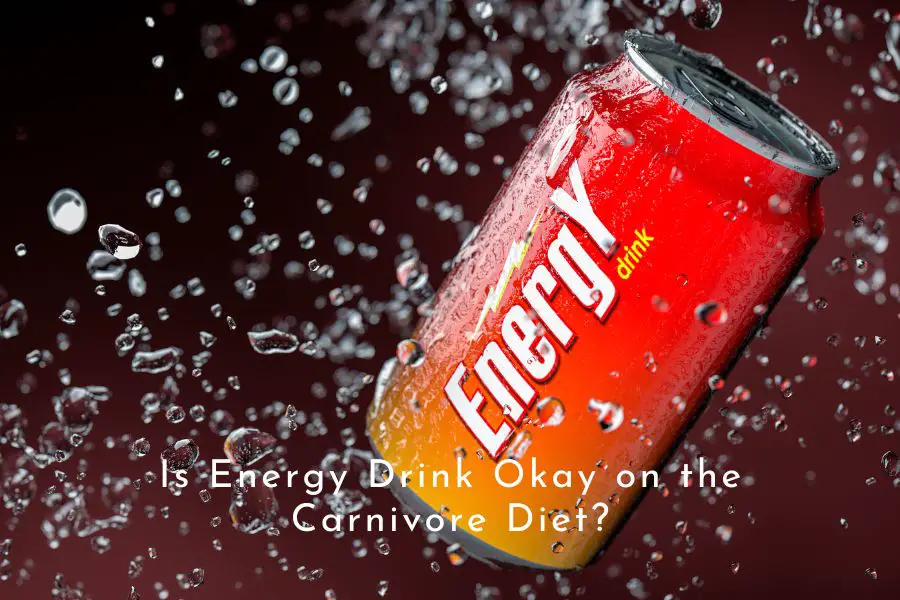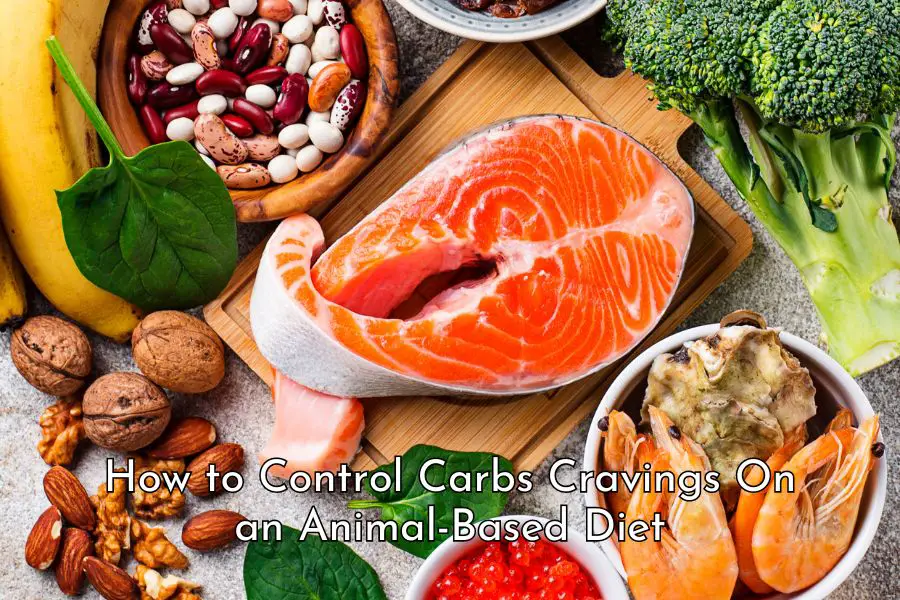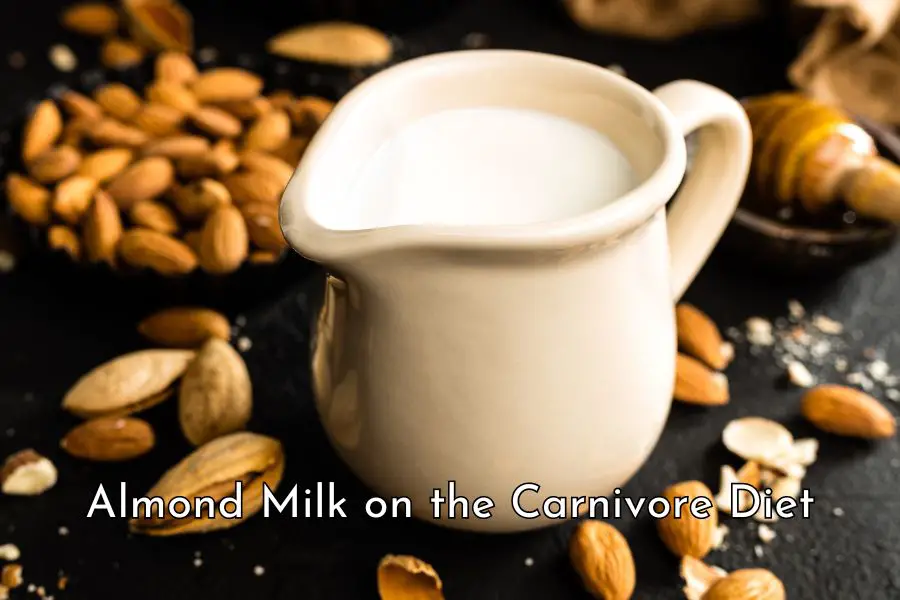This article looks at what’s in energy drinks and whether it is okay to consume energy drinks on a carnivore diet.
What Are Energy Drinks?
Energy drinks are beverages that are produced and marketed as a product to provide a quick energy boost, increased mental alertness and improved physical performance. [1]
There are two types of energy drinks: standard energy drinks and energy shots. Standard energy drinks are typically sold in containers similar in size to regular soft drink bottles, with a common size being 8-16 ounces (250-473 ml). Energy shots are significantly smaller than standard energy drinks and typically come in 2-ounce (60 ml) bottles or similar small containers. [2]
Although smaller in size, energy shots contain a very high level of caffeine and often feature a concentrated dose of energy-boosting ingredients such as B-vitamins, and amino acids. For example, an 8-ounce can of Red Bull Energy Drink contains 80 mg of caffeine, similar to the amount of caffeine in a home-brewed cup of coffee. However, a 2-ounce can of 5-Hour Energy Shot has an whopping 230 mg of caffeine, almost equivalent to the caffeine content of three cups of coffee. [3, 4]
Energy drinks typically contain caffeine, sugar, amino acids, artificial sweeteners, natural or artificial flavors, and preservatives. They sometimes also have added vitamins and plant extracts to appeal to health conscious consumers. [5, 6].
Most consumers would not look at drink labels nor understand what the ingredients mean. But if you consume energy drinks often, it’s worth knowing what’s in them and what you are putting in your body.
Below are a few examples of what you can expect to find in energy drinks.
Standard Energy Drinks
Carbonated Water, Sugar, Glucose, Citric Acid, Taurine, Natural and Artificial Flavors, Sodium Bicarbonate (Baking Soda), Magnesium Carbonate, Colors, Caffeine, Niacinamide, Pyridoxine HCl (Vitamin B6), Calcium Pantothenate, Vitamin B12
Red Bull Energy Drink
Carbonated Water, Natural Flavors, Lemon Pulp, Erythritol, Citric Acid, Taurine, Sodium Citrate, Panax Ginseng Flavor, L-carnitine L-tartrate, Potassium Sorbate (Preservative), CAFFEINE, Sucralose, Sodium Benzoate (Preservative), Niacinamide (Vit. B3), D-Calcium Pantothenate (Vit. B5), Acesulfame Potassium, Inositol, Pyridoxine Hydrochloride (Vit. B6), Yellow #5, Yellow #6, Cyanocobalamin (vitamin B12).
Monster Ultra Sunrise, Sugar Free Energy Drink
Carbonated Water, Sugar, Glucose Syrup, Citric Acid, Taurine, Sodium Citrate, Caffeine, Potassium Sorbate (Preservative), Sodium Benzoate (Preservative), Inositol, L-Carnitine, Acesulfame Potassium, Sucralose, Natural Flavor, Red #40, Niacinamide, D-Calcium Pantothenate, Milk Thistle Extractives, Panax Ginseng Root Extractives, Pyridoxine Hydrochloride, Guarana Seed Extractive, Cyanocobalamin.
Rockstar Punched Fruit Punch Energy Drink
Carbonated water, acidity regulators (citric acid, potassium citrate, potassium phosphate dibasic), flavours, preservatives (potassium sorbate, sodium benzoate), sweeteners (sucralose, acesulfame potassium), caffeine (0.032%), antioxidant (ascorbic acid), vitamins (niacin, Pantothenic acid, thiamin, vitamin B6, Vitamin B12), magnesium sulphate, inositol (0.0028%), stabiliser (calcium chloride).
Bang Energy Blue Razz
Carbonated Filtered Water, Citric Acid, Taurine, Guarana Seed Extract, Green Tea Extract, Caffeine, Calcium Carbonate, Sucralose, Ascorbic Acid, Glucuronolactone, Ginger Root Extract, Calcium Pantothenate, Niacinamide, Natural Flavor, Pyridoxine Hydrochloride, Riboflavin, Chromium Chelate, Biotin, Cyanocobalamin, Beta-Carotene (color).
CELSIUS Essential Energy Drink
Energy Shots
Vitamin B6, Vitamin B12, Vitamin B3 (Niacin), Citicoline, Tyrosine, Phenylalanine, Taurine, Malic Acid, Glucuronolactone, Caffeine. Other Ingredients: Purified Water; Natural and Artificial Flavors; Sucralose; Potassium Sorbate, Sodium Benzoate and EDTA (to protect freshness).
5-hour ENERGY Shot
Filtered Water, Vitamin B12, Caffeine, Oriental Ginseng Root Extract, Evodia Fruit Extract, N-Acetyl-L-Tyrosine, Yerba Mate Leaf Extract, Green Tea Extract, Yohimbine HCl, 5-Hydroxytryptophan, Vinpocetine, Citric Acid, Natural Flavor, Sucralose, Potassium Sorbate (Preservative), Sodium Benzoate (Preservative), Beta Carotene For Color, EDTA.
Tweaker Energy Shot
Are Energy Drinks Okay on the Carnivore Diet?
You should not consume energy drinks on the carnivore diet because they are an ultra-processed product containing ingredients that are harmful for your health such as caffeine, added sugar, and artificial sweeteners.
Energy drinks are often marketed as performance-enhancing beverages that can improve physical and mental alertness and are especially popular among individuals looking for a quick energy boost, including students, athletes, and those with demanding lifestyles.
While energy drinks can provide a temporary energy boost, this energy boost is due to ingredients such as caffeine and added sugar. The excessive consumption of these can lead to many adverse effects, including increased heart rate, high blood pressure, anxiety, sleep disturbances, gastrointestinal upset, dehydration, dental erosion, other health risks and, in rare cases, death. [7, 8]
Caffeine
One of the reasons why energy drinks give you a boost of energy and mental alertness is its high caffeine content. For example, a 16-ounce can of Rockstar Energy Drink has 240 mg of caffeine while a 2-ounce Eternal Energy Shot has 230 mg of caffeine. Such amounts of caffeine are equivalent to the caffeine in about 3 cups of coffee. [9, 10]
Caffeine is an adenosine receptor antagonist. As a neurotransmitter, adenosine promotes relaxation and sleepiness. Adenosine levels gradually build up in the brain over the course of the day, leading to feelings of fatigue and the natural desire for sleep at night. However, when you consume caffeinated drinks, caffeine blocks adenosine receptors in the brain and prevents adenosine from binding to its receptors, which temporarily counteracts the feelings of tiredness and promotes wakefulness. [11]
In addition, when adenosine receptors are blocked by caffeine, it also results in an increased release of certain neurotransmitters, such as dopamine and norepinephrine. These neurotransmitters are associated with improved mood, alertness, and cognitive function, which can contribute to the feeling of increased energy and focus. [12, 13]
As a result, for a short period of time, energy drinks with their high caffeine contents can create the illusion of reduced fatigue, heightened alertness, increased vitality, and even enhanced creativity.
However, caffeine does not give you any extra energy, all it does is interfering with the normal functioning of your brain and stopping you from feeling what you are supposed to feel. As the effect of caffeine begins to subside after an hour or so, you’ll begin to feel tired and lack of energy again.
Caffeine does not give you a boost of energy, it is a tool for you to borrow tomorrow’s energy today at significant costs.
A well-known impact of caffeine is sleep disruption. Not only caffeine reduces sleep duration, it also reduces the amount of deep restorative sleep which is critical for cellular repair, memory, immune function, hormone regulation and physical recovery. [14, 15, 16, 17]
In addition, caffeine has been found to cause increased heart rate, high blood pressure, insomnia, anxiety, nervousness, headache, irregular heartbeat, nausea, gut issues, and muscle breakdown. [18, 19, 20, 21, 22, 23, 24, 25]
Sugar
The American Heart Association recommends a daily limit of no more than 9 teaspoons of added sugar for men and 6 teaspoons for women from all sources. However, a single can of energy drink can contain 2 to 3 times this recommended allowance. For example: [26, 27, 28, 29, 30, 31]
- Rockstar Guava Punched Energy Drink (16 oz) contains a staggering 83.4 grams, equivalent to 21 teaspoons of sugar.
- Rockstar Punched Fruit Punch Energy Drink (16 oz can) packs in 61 grams, or 15 teaspoons of sugar.
- Monster Energy, Original, Energy Drink (16 oz can) boasts 54 grams, approximately 13.5 teaspoons of sugar.
- Red Bull Energy Drink (8 oz can) contains 26 grams, equal to 6.5 teaspoons of sugar.
- Java Monster Café Latte, Coffee + Energy Drink (15 oz) supplies 24 grams, which translates to 6 teaspoons of sugar.
The added sugar does give you the feeling of energy boost as it instantaneously spikes your blood sugar. However, this is the worst possible form of energy due to its adverse health implications. In particular: [32, 33, 34, 35, 36, 37, 38, 39, 40, 41, 42, 43]
- Weight gain and obesity: Added sugars provide calories but lack essential nutrients. Consuming sugary drinks may not satisfy hunger and can lead to increased overall calorie intake. Unsurprisingly, sugary beverage consumption has been linked to weight gain and obesity
- Increased risk of type 2 diabetes: Regular consumption of sugary drinks can lead to insulin resistance and increase risk of developing type 2 diabetes
- Dental erosion: Sugary drinks are a major contributor to tooth decay and cavities. Bacteria in the mouth feed on sugar and produce acids that can erode tooth enamel, leading to dental problems
- Heart disease: Excessive sugar intake, especially fructose found in high-fructose corn syrup (a common sweetener in sugary drinks), has been associated with an increased risk of heart disease
- Digestive issues: High sugar intake can lead to digestive problems, such as diarrhea and bloating, especially in people with conditions like irritable bowel syndrome
- Addictive properties: Sugar can be addictive for some people. Consuming sugary drinks can lead to cravings and a cycle of over-consumption, making it difficult to reduce sugar intake.
Artificial sweeteners
In response to consumer concerns regarding the excessive levels of added sugar in energy drinks, manufacturers have substituted sugar with artificial sweeteners like aspartame, sucralose, saccharin, and acesulfame potassium to produce “sugar-free” or “zero-calorie” beverages.
However, while artificial sweeteners fail to help controlling calorie intake, they have been found to pose several health risks. In particular: [44, 45, 46, 47, 48, 49, 50, 51, 52, 53, 54, 55, 56]
- Weight gain: Some studies suggest that artificial sweeteners may disrupt the body’s ability to regulate calorie intake and appetite. The consumption of artificial sweeteners can lead to increased cravings for sweet and high-calorie foods, potentially contributing to weight gain and obesity in the long term. In addition, because artificial sweeteners are calorie-free, some individuals may overcompensate by consuming larger portions or more high-calorie foods, thinking they can “afford” the extra calories due to the absence of sugar. This can lead to excessive calorie intake and weight gain
- Negative impact on gut microbiota: Emerging research has indicated that artificial sweeteners may alter the composition and function of the gut microbiota, which can have implications for metabolic health and the immune system. Changes in the gut microbiome have been linked to conditions such as obesity and metabolic syndrome
- Cancer: Some studies have raised concerns about potential associations between certain artificial sweeteners and cancer, particularly in animal studies. However, there is a lack of quality studies in humans
- Cardiovascular disease: Some studies have suggested a potential association between artificial sweeteners and an increased risk of cardiovascular disease. For example, erythritol, a sugar substitute and sweetener used in many food and beverage products, has been linked to an increased risk of blood clotting, stroke, heart attack and death
- Other health risks: Some studies have suggested potential links between artificial sweeteners and health issues such as metabolic syndrome and type 2 diabetes.
Preservatives
Preservatives such as sodium benzoate and potassium sorbate, are substances added to many food, beverages and other products to prolong their shelf life by inhibiting the growth of microorganisms and preventing spoilage.
While many preservatives are generally recognized as safe when used within established limits, there are concerns about potential health risks associated with some preservatives.
For example, sodium benzoate can form a potentially carcinogenic substance called benzene when it reacts with ascorbic acid in the presence of heat and light. It has also been linked to inflammation, ADHD, oxidative stress and allergies. [57, 58, 59, 60, 61, 62, 63, 64, 65, 66]
Potassium benzoate, on the other hand, has been found to be clastogenic, mutagenic and cytotoxic to human lymphocytes in vitro and cause deformities in pregnant mice. [67, 68, 69, 70]
Other ingredients
Energy drinks may contain other ingredients, such as taurine, guarana (a plant-derived source of caffeine), ginseng, and various B-vitamins. These additional ingredients are often claimed to provide various health benefits or enhance energy levels.
However, if you are currently on the carnivore diet, you do not need energy drinks to improve your nutrient intake, you are already eating the most nutrient dense food possible.
Conclusion
You should not consume energy drinks on the carnivore diet or any other diet for that matter because there is nothing healthy in energy drinks.
Energy drinks may provide a temporary energy boost through unhealthy added sugars or, with high doses of caffeine, create an illusion of an energy boost by borrowing tomorrow’s energy today. Over time, this can lead to dependency on energy drinks for daily functioning, an extremely unhealthy habit.
Excessive caffeine from these beverages can result in adverse effects such as heart palpitations, high blood pressure, anxiety, and sleep disturbances. The combination of caffeine and high sugar levels can lead to energy crashes, causing fatigue and irritability once the initial caffeine surge subsides. Furthermore, these drinks often contain potentially harmful ingredients associated with negative health outcomes.
For a healthier energy boost, consider options like consuming nutritious snacks (such as beef jerky, liver jerky, pork crackles, or boiled eggs), taking a brief nap, staying adequately hydrated, getting sufficient sleep, or engaging in regular exercise.
Other posts you might be interested in:
Can You Have Mayonnaise on the Carnivore Diet?
Is Diet Coke Okay on the Carnivore Diet?
Are Eggs Okay on the Carnivore Diet?
Can You Eat Avocados on the Carnivore Diet?
Is It Okay to Eat Chicken on the Carnivore Diet?
Can You Drink Milk on the Carnivore Diet?
Do You Need to Eat Fish on the Carnivore Diet?
Is It Okay to Eat Bacon Every Day on the Carnivore Diet?
Is Cheese Okay on the Carnivore Diet?
Disclaimer: The information in this post is for reference purposes only and is not intended to constitute or replace professional medical advice. Please consult a qualified medical professional before making any changes to your diet or lifestyle. Please check out our disclaimer for more detail.





